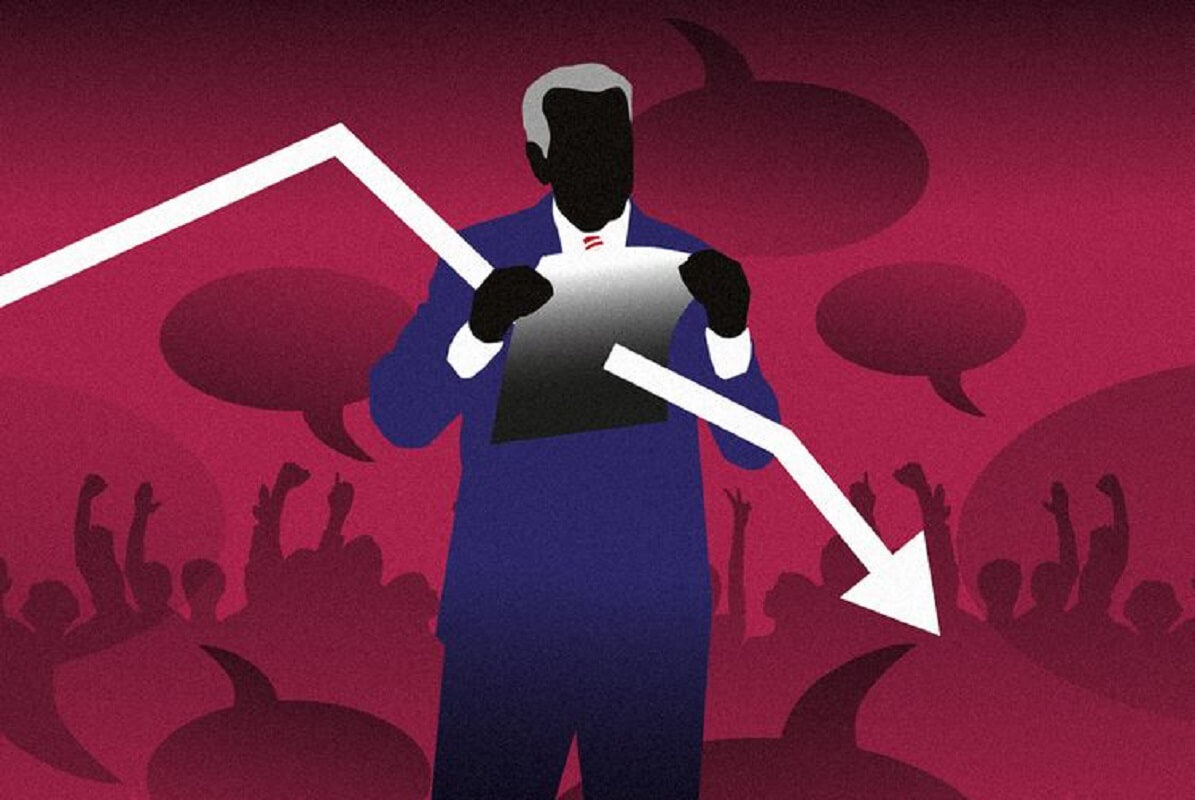Top Three Things Shaping US Public Discourse in 2022
Jonathan Bernstein | 05 April 2022
Poor evaluation of economy is pushing Biden’s approval ratings down as midterms approach
I’m looking forward to attending the annual conference of the Midwest Political Science Association in Chicago. Given the state of the pandemic, I’m hoping it will be well, not quite normal, but at least in the neighbourhood of normal.
If that’s the case, I’ll have a chance to visit with old friends and colleagues, meet folks I’ve only interacted with on Twitter or by email, and hear a fair amount of cutting edge research.
As usual, however, outside of my narrow scholarly interests (in political parties, for example), it’s not really the new research I’m most interested in, although I usually run into a few fascinating findings.
What’s especially interesting to me is talking to smart people who have spent years studying stuff that I often write about outside my immediate research area, often to clear up things that baffle me or, sometimes, to confirm that my less-informed views are backed up by the experts.
Since it’s been awhile, I’ve been thinking about what’s going on that I’d like to understand better. So I’m going to keep my ears open for three things:
— Public opinion about the US economy right now. Some of what is driving pessimism about the economy is a bad case of inflation and soaring gasoline prices. There’s also knee-jerk partisanship, with Republicans automatically declaring that the economy is bad as soon as a Democratic president was elected.
But given the robust job market and healthy (perhaps too healthy) growth numbers, the popular view that the economy is terrible still needs some additional explanation. I’ve thought that it was mainly about the pandemic, with general pessimism and frustration rubbing off on everyone’s evaluation of everything.
But the end of the omicron wave of Covid-19 hasn’t changed public opinion much, so perhaps I was wrong. Some people believe that media bias is responsible.
Some suspect there are specific problems, mainly tied to the virus, that don’t show up in the traditional statistics. Whatever the reason, I’m confident that poor evaluations of the economy are pushing President Joe Biden’s approval ratings down and creating a strong atmosphere for Republicans as the midterm elections approach.
In other words: It’s a big deal. It would be nice to know what’s going on.
— Senate Republicans have been quite obstructive during the current Congress, but overall I’d say they’re not quite being as flat-out obstructionist as I had expected. Just this week, for example, the Senate passed a bill to finance science and technology with plenty of Republican votes to overcome a Republican filibuster. And it confirmed four executive-branch nominees by voice votes.
Now, all this and other examples of constructive engagement have coincided with plenty of what I would classify as obstruction — not just opposing things they honestly don’t like, but refusing to cut deals and using Senate procedure to grind things to a halt just because they can.
So: What’s happening? Have they actually backed off some, or is my impression wrong? If so, why? And what, if anything, does it tell us about how future Senates might act, and how that would matter to policy-making?
— History, history, history. I have a pretty good sense of what some scholars call the “modern” presidency, but I’m spotty before Franklin Roosevelt and especially before the 20th century. Some groups of political scientists, however, have found fresh ways to use historical data, on everything from the partisan effects of the Great Migration of Black Southerners to the north in the middle of the 20th century, to how the Army was involved in economic development in the early Republic.
What I’d like to learn more about is whether there’s anything in earlier US history that can help explain Donald Trump and Trumpism, both as a presidency and as a challenge to democracy. It’s not that recent examples can’t help with understanding Trump (and, for that matter, Biden), but that I suspect there’s more that I just don’t have a good enough handle on.
We shall probably also wind up learning about Biden’s immigration and refugee policies and new research on representation.
Jonathan Bernstein is a columnist covering politics and policy. He taught political science at the University of Texas at San Antonio and DePauw University.
This article was originally published on Gulf News.
Views in this article are author’s own and do not necessarily reflect CGS policy.
